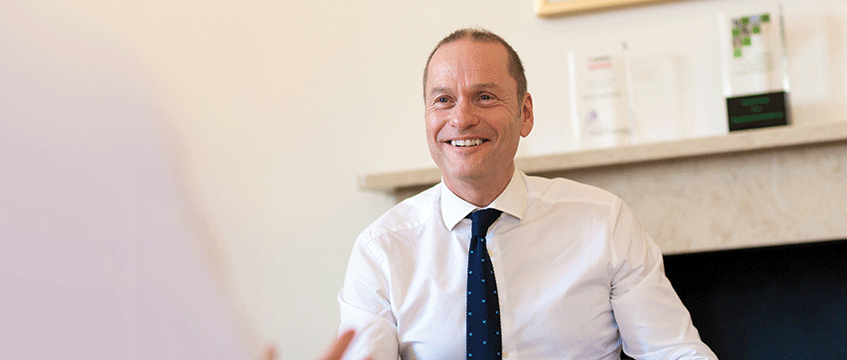Rolling out of bed and being on the tennis court within a few minutes, and being able to jump into his electric smart car and be at his desk within four minutes, is a little slice of heaven for British Land’s former head of offices Tim Roberts.
But the bigger slice of heaven for Roberts is taking up the role of chief executive of Henry Boot, a majority family owned, publicly listed business that a lot of people will have heard of but very few will really be able to tell you much about.
Roberts says Henry Boot is a hidden gem. A business that has quietly, for 100 years, gone about its work on the public markets massively outperforming. Over the past 20 years, says Roberts, Henry Boot has delivered a shareholder return of 15% per annum, compared with 5% from the FTSE.
“I’ve been used to working in an industry where you were trying to beat an index by a fraction… and outperformance by a fraction is significant,” he says, “but God bless Henry Boot, it has outperformed by a multiple of three.”
It was a statistic that surprised Roberts when he started doing his due diligence on the company before taking up the role in January. And a statistic that he clearly wants to use to make people sit up and listen when Henry Boot is talked about.
It’s not that people don’t know the name Henry Boot, says Roberts. When he was announced as the firm’s new chief executive in August last year, he says he was inundated with e-mails and calls from people telling him about their connection with the business. But while people may know the name Henry Boot, Roberts wonders if they really know what it does and how much potential it has to deliver on the needs of the country.
Henry Boot has a whopping 15,000 acres of land under its control, either owned through promotion agreements or options, with around half of that in the south Midlands, South West or South East of England. It has a development pipeline of some £2.3bn and three businesses – construction, land promotion and development – that combined have all the operational experience required to deliver.
And it is that combination where Roberts believes he can bring all the ingredients of an already successful company together to deliver even more.
“One of the important things I will do is try and look at the synergies, the efficiencies and the common areas those businesses work in,” says Roberts. “Already there is one striking area they all do work in – residential.
“We do PRS, have got a regional housebuilder, we’ve got a construction business that builds decent homes and affordable housing and apartments, we’ve got a land promotion business whose main customers are housebuilders.
“So if you talk about a mega trend, which is that there is a shortage of housing, particularly affordable housing, Henry Boot should be able to lean into that trench. What we should be able to do as a group is give all those three businesses an overarching strategic focus when they are working in the residential area.”
He adds: “Where we own the land and it fits in with HBD’s [Henry Boot Development] strategic objectives, we’ve got to be more thoughtful about one division feeding the pipeline of another division. There’s got to be some synergies, some crossover and some cross-fertilisation. I’m really keen to do that.”
Roberts is halfway through his 90-day chief executive plan for the business and bringing the three subsidiaries of the business together is a key focus.
“Six weeks in, bearing in mind the business has been successful and is positioned very well, my emphasis will be on evolving the strategy and making sure the subsidiaries work better together,” he says. “As I get more into the business, we’ll also be looking at where we’re employing capital, where we think that we have advantages and specialisms so we can offer customers a proper service and can therefore make good commercial returns.”
I’ve been used to working in an industry where you were trying to beat an index by a fraction… and outperformance by a fraction is significant,” he says, “but God bless Henry Boot, it has outperformed by a multiple of three.
“I think we can also be clearer to people about what we do,” adds Roberts. “People see us as a retail and leisure business, but we’re not. We are obviously significantly involved in the residential market, but if you look at the land we’ve got, three-quarters of it is manufacturing and logistics.”
While Roberts says he’s not yet ready to reveal the grand plans for the business, it is clear to see he wants to turn Henry Boot into a recognisable name, across some of real estate’s more sustainable business sectors – housing, logistics and mixed use.
“Henry Boot would often describe itself by who it is,” says Roberts. “When I talk to people about what we stand for, people often talk about the values and the Henry Boot way. It is refreshing, but it also needs to be more than that. You can’t just say we’ve got good integrity, we’re here for the long term. It is about what you are going to do with those values. That’s what we’ve got to be clear about.”
But what about for Roberts personally? What does he hope to achieve as a chief executive? What values does he have and what is he going to do with them?
Roberts clearly feels a lot of responsibility in his new role, not only because he has taken over in the 100th year of the business being listed, but because it is his first time as a chief executive.
“You have to take the responsibility seriously because at the end of the day you’re a leader,” he says. “You will form an opinion of strategic direction and you will have a big influence over the culture of an organisation. You’ve got to have a bit more responsibility than if you were an executive director.”
For Roberts, the culture he wants to bring to Henry Boot is one of openness. Not long returned from a trip to Nepal and a hike to Everest base camp, Roberts is also keen to hold on to the lessons he learnt from a country that has very little but gives a lot.
“Nepal is a God-fearing, optimistic, poor country where people look after each other,” he says. “You go there and they are all happy. I hope that has changed me, even just a little bit. It might be that I get into the day-to-day humdrum and challenges and that it wears away. I hope it won’t. And if it does. It won’t be through the lack of conscious effort to retain it because I’m going to be a happier, more interesting person if I have that outlook on life.”
So far, Roberts seems to be heading in the right direction, taking on the responsibility of continuing to deliver on those returns, while modernising the business with a focus on collaboration, inclusiveness, openness and honesty.
And, of course, a game of tennis first thing and the joy of not stressing about whether the 6.36am train to London is going to turn up.

To send feedback, e-mail samantha.mcclary@egi.co.uk or tweet @samanthamcclary or @estatesgazette











